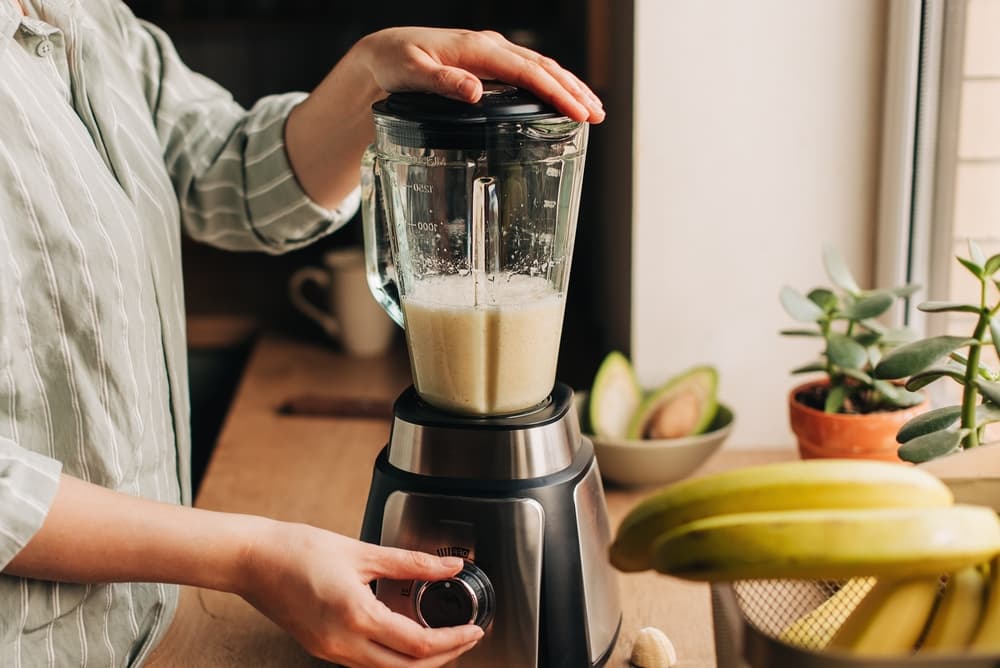
Banana Shake Benefits: Health, Skin, Fitness & More
2024-08-09
5 mins
Fruits are typically regarded as a healthy choice during pregnancy due to their rich vitamin, mineral, and fiber content. However, one fruit that often raises concerns for expectant mothers is papaya. While papaya is known for its numerous health benefits, understanding the nuances of its consumption during pregnancy is crucial for ensuring both maternal and fetal health.
Not all papayas are harmful to pregnant women. In fact, ripe papaya is generally safe and packed with essential nutrients that can be highly beneficial during this time. Ripe papaya contains a wealth of vitamins and minerals, including vitamins A, B, and C, folate, potassium, beta-carotene, and choline. These nutrients are vital for the development of the fetus and can also support the health of the mother. For instance, folate is particularly important as it helps prevent neural tube defects, while potassium can help manage fluid balance and blood pressure.
However, caution is advised with unripe or raw papaya, which can pose risks due to its high latex and papain content. It is essential to distinguish between ripe and unripe papaya to understand their different effects on pregnancy.
One of the significant concerns surrounding papaya in pregnancy is the risk associated with consuming raw papaya. Unripe papaya contains latex, which can be problematic during early pregnancy. Latex found in unripe papayas may interfere with the development of the placenta, potentially leading to complications such as increased vascular pressure, internal bleeding, or even miscarriage. This raises a critical question: Can papaya cause miscarriage in early pregnancy? The answer lies in the properties of latex and papain. The presence of these substances can disrupt normal physiological processes necessary for a healthy pregnancy.
Another major risk of consuming raw papaya is its potential to trigger premature labor. The enzyme papain found in raw papaya can stimulate the production of oxytocin and prostaglandin hormones, both of which play crucial roles in initiating uterine contractions. This stimulation could lead to premature labor, posing significant risks to both the mother and the developing baby. Consequently, it is crucial to avoid raw papaya while pregnant to mitigate these risks and ensure the pregnancy progresses smoothly.
In addition to risks associated with miscarriage and premature labor, raw papaya can also interfere with the implantation process during early pregnancy. Proper implantation is critical for the embryo’s successful attachment to the uterine wall. The components in raw papaya may disrupt this essential process, increasing the risk of pregnancy loss. Understanding how papaya and pregnancy interact is vital for expectant mothers who want to support their health and the health of their unborn child.
The enzymes found in raw papaya, including papain and pepsin, can potentially disrupt fetal tissue development and weaken vital membranes that protect the embryo. This could lead to complications that may adversely affect overall fetal health. This concern is significant for women considering the safety of consuming papaya while pregnant, as it highlights the importance of avoiding unripe varieties.
In addition to the physiological risks, consuming raw papaya can lead to allergic reactions. Symptoms may include a runny nose, rashes, and, in severe cases, anaphylaxis. Such reactions can make pregnancy more challenging and uncomfortable. Pregnant women need to be mindful of any food allergies they may have and exercise caution when introducing new foods into their diets.
Given these risks, it is advisable for pregnant women to avoid raw or unripe papaya altogether. If you choose to include ripe papaya in your diet, it should still be consumed with caution. It’s best to consult with a healthcare provider or a registered dietitian to determine the appropriate amount of ripe papaya that can be safely incorporated into your diet. To ensure a safe and balanced diet during this crucial time, consider incorporating a variety of other nutrient-rich fruits and foods. For example, bananas, berries, apples, and oranges can provide similar benefits without the associated risks of papaya.
In addition to papaya, there are other fruits that may pose risks during pregnancy:
Pineapple: Pineapple contains bromelain, an enzyme that can soften the cervix and potentially lead to increased risk of premature contractions. It may also cause digestive upset, such as diarrhea, making it less suitable for pregnant women.
Grapes: Grapes are often considered "heaty" fruits in some cultures and can lead to complications during pregnancy, such as gestational diabetes. It’s advisable to consume grapes in moderation.
Maintaining a balanced diet during pregnancy is crucial for both the mother and the baby. While ripe papaya can be a part of a healthy diet, raw papaya should be strictly avoided to prevent potential risks associated with its consumption. It’s important for expectant mothers to stay informed and make educated dietary choices to support their health during this transformative time.
Always consult your healthcare provider about your diet, including any concerns regarding papaya during pregnancy and other dietary choices. Discuss any supplements or health products you plan to take to ensure they support a healthy pregnancy and do not introduce any unnecessary risks.
Disclaimer: This article offers general information and should not replace professional medical advice. Always consult your doctor before making changes to your diet or health regimen, especially when considering the implications of consuming papaya and pregnancy. It is vital to prioritize both your health and the well-being of your developing baby.
Share this article: